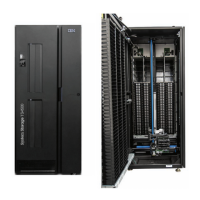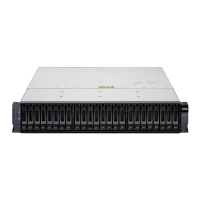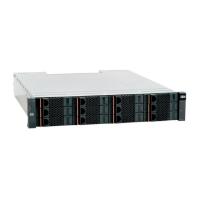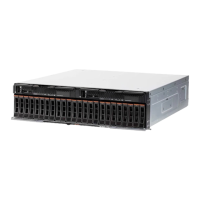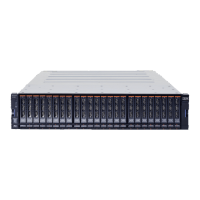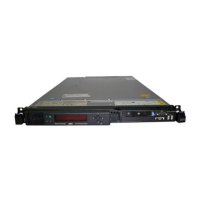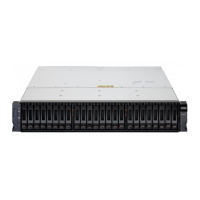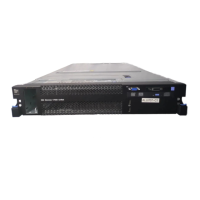Chapter 19. Host multipathing 275
When multiple paths to a LUN are available, a consistent method of the use of those paths
must be determined. This method is called the
load balance policy. The following five
standard policies in Windows Server 2008 apply to multiconnection sessions and MPIO.
Other operating systems can implement different load balancing policies:
Failover only: Only one path is active at a time, and alternative paths are reserved for path
failure.
Round robin: I/O operations are sent down each path in turn.
Round robin with subset: Some paths are used as in round robin, while the remaining
paths act as failover only.
Least queue depth: I/O is sent down the path with the fewest outstanding I/Os.
Weighted paths: Each path is given a weight that identifies its priority, with the lowest
number having the highest priority.
19.2 Multipathing software options
The multipathing solution can be provided by the following resources:
Third-party vendors:
– Storage vendors provide support for their own storage arrays, such as the IBM Data
ONTAP DSM for Windows. These solutions often are specific to the particular vendor’s
equipment.
– Independent third-party vendors offer heterogeneous host and storage support, such
as Symantec and Veritas DMP.
Operating system vendors as part of the operating system, for example, Windows
MSDSM, Solaris MPxIO, AIX MPIO, Linux Device-Mapper Multipath, HP-UX PVLinks,
VMware ESX Server NMP
19.2.1 Third-party multipathing solution
Third-party multipathing solutions are provided by storage vendors or independent software
vendors, such as Symantec. The advantage of the use of multipathing solutions that are
provided by storage vendors is that it provides a unified management interface for all
operating systems. This unified interface makes administering a heterogeneous host
environment easier. In addition, storage vendors know their array the best, and so the
multipathing solution provided by the storage array vendor can provide optimal performance.
Conversely, the multipathing solutions that are provided by storage vendors have the following
disadvantages:
Most of these solutions come with fee-based software licenses, and often require ongoing
license maintenance costs.
The solutions that are provided by storage vendors lock the customer into a single storage
platform. Some of these solutions do have support for other storage arrays, but there
might be long qualification or support delays.
These solutions usually do not interoperate well with multipathing solutions from other
storage vendors that must be installed on the same server.
The multipathing solutions that are provided by Symantec also require fee-based software
licenses. However, these solutions provide support for heterogeneous storage and
heterogeneous host OS.

